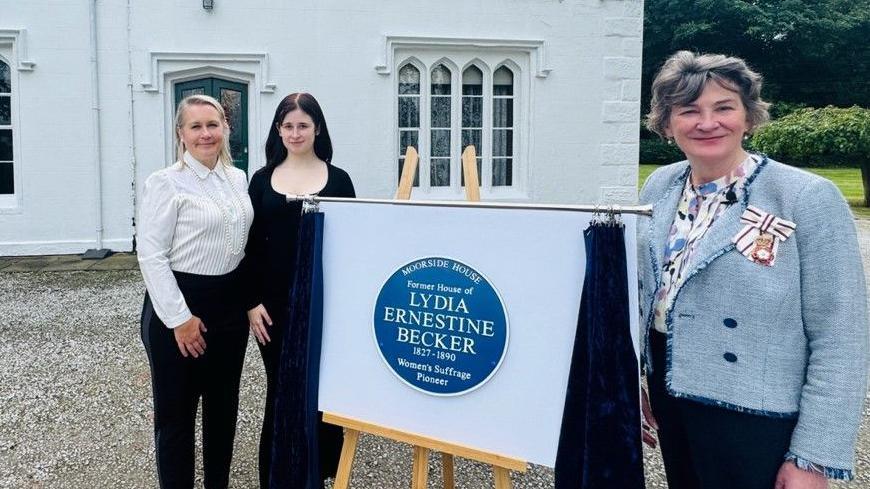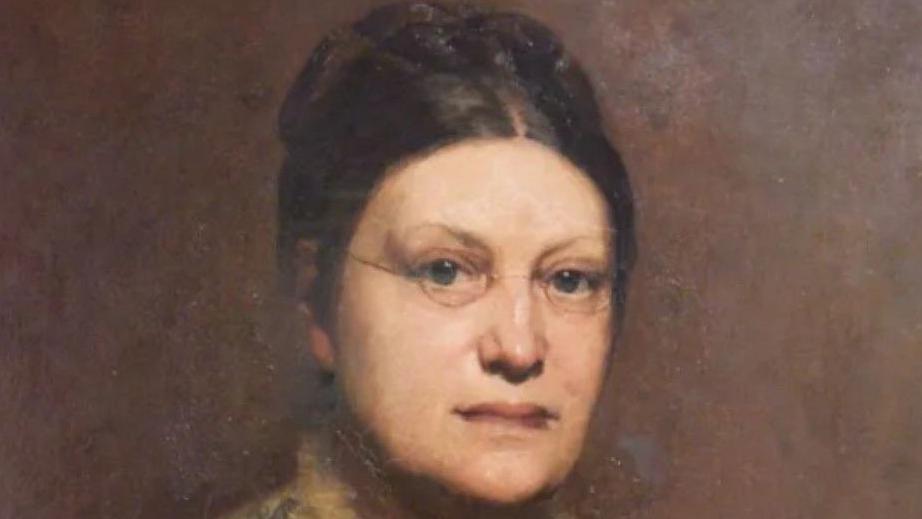Blue plaque placed at Suffragette's childhood home

Lord-Lieutenant of Lancashire Amanda Parker unveiled the plaque alongside members of the Groves family who live at the home
- Published
One of the pioneers in the "votes for women" fight of the early 20th century has been recognised with the unveiling of a blue plaque in the house where she spent her childhood.
Lord-Lieutenant of Lancashire Amanda Parker unveiled the plaque at Moorside House in Altham, near Accrington, where Lydia Becker lived.
The incumbent Groves family, who welcomed dignitaries to the event and gave them a tour of the building, which includes artwork originally painted by Becker.
Current owner Heath Groves said: "Lydia Becker's connection gives Moorside House a special place in the history of women's rights, and we're delighted this blue plaque will keep that legacy alive for future generations."

Lydia Becker was a key figure in the early women's suffrage movement
Mrs Parker, said: "I'm absolutely delighted to unveil this plaque in honour of Lydia Becker and recognition of all the work she did for women.
"At the time she didn't realise how much that meant. But now all the things we can do are because of people like her.
"To have somebody from Lancashire, especially, who was so pioneering is a really proud moment."
Alongside the likes of Emmeline Pankhurst and Millicent Fawcett, Manchester-born Becker was a prominent radical and was instrumental in the struggle for democracy and women's rights.
She was one of three main speakers who addressed the first meeting of the National Society for Women's Suffrage at the Free Trade Hall in Manchester on 14 April 1868.
It marked the beginning of the militant campaign for women's voting rights.
Becker also founded and published the Women's Suffrage Journal between 1870 and 1890.
Get in touch
Tell us which stories we should cover in Lancashire
Listen to the best of BBC Radio Lancashire on Sounds and follow BBC Lancashire on Facebook, external, X, external and Instagram, external. You can also send story ideas via Whatsapp to 0808 100 2230.
Related topics
- Published21 March 2015